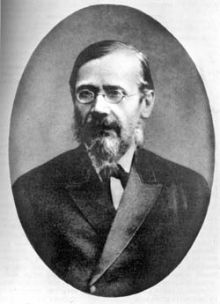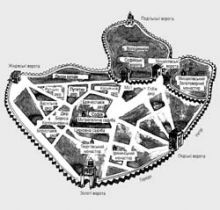There are certain “eternal” historical problems that pass through the centuries, only to become the renewed focus of new generations. Questions of historical continuity are especially interesting. The most striking example is the lively interest in the most important aspect of the history of the ancient Slavs, which the chronicler Nestor (and perhaps some other unknown authors) thus phrased in The Tale of Bygone Years: “Who was the first prince of Kyiv?” and “Where did the Rus’ land originate?” Much to our regret, the problem of the historical heritage of the Eastern Slavs, the origin, formation, and development of the statehood, culture and public institutions of the Russians, Ukrainians, and Belarusians has in fact never been the preserve of “pure,” judicious, and unbiased research. For hundreds of years it has been at the center of a “force field” of political tendentiousness and spiteful blindness, when the search for the truth loses all value. For the tsarist government of Muscovy, as well as the Romanov imperial dynasty and the leaders of the Soviet empire, the unquestionable dogma-indeed, the “cornerstone” of the entire political and historical pattern that was imposed on all subjects in a coercive or often repressive manner — was the idea of the “common Russian” (read “Great Russian”) nature of all the Eastern Slavs, both in Kyivan Rus’ and the Muscovite principality. This laid the “scholarly” groundwork for the conclusion that of all the Eastern Slavic peoples only the Russians (“Great Russians”) are capable of establishing a state, while the Ukrainians are unable to do so and, by force of this, “have never had and cannot have a state of their own.”
These kinds of chauvinistic myths are astonishingly persistent even today at the level of both the grassroots and the intellectual elite. For example, many Russians ask the typical question, “How did Kyiv become a Ukrainian city if it was once called the ‘mother of Russian cities’?” This seems to be an unintentional blunder, whereby such notions as “Rus’” and “Russia” are interchanged, which leads to terminological confusion and distortion of the historical truth. On the other hand, even such a distinguished scholar as Professor Dmitriy Likhachev, who devoted his life to The Tale of Ihor’s Campaign, called it “a monument of ancient Russian literature,” perhaps meaning, “Great Russian.”
At the same time, even the scholarly heritage of the greatest Russian historians of the late 19th — and early 20th century (whose prestige is still unchallenged) contains certain ideas that clearly run counter to the Russian imperial pattern. First of all, I am referring to the oeuvre of Vasiliy O. Kliuchevsky (1841-1911), an outstanding scholar and Moscow University professor, who is almost unanimously considered the preeminent historian of Russia. Kliuchevsky’s works are really part of both Russian and worldwide culture. Kliuchevsky, who was a cautious and diplomatic person who knew how to avoid taking sides, especially when dealing with the authorities (he taught history to the family of Tsar Alexander III), was nevertheless opposed to all kinds of chauvinism (!) and took a rather critical and radical approach to the “imperial pattern” in question. He thus revised the most essential points of this scheme in his famous A Course in Russian History, the synthesis of his lifelong studies.
To begin with, the 17 th lecture of the first volume of the Course (1904) is devoted, to use Kliuchevsky’s own terminology, to the origins of the Great Russian tribe (this subject undoubtedly concerns Ukraine, too) and “the impact of the Upper Volga basin’s nature on the tribal character of Great Russians.” This may seem strange at first: what does this have to do with the Upper Volga basin’s nature? The point is that Kliuchevsky, who regarded the history of Russia as the “history of a country being colonized,” considered the colonization of the Eastern European Plain (which he considered to have begun in the latter half of the 12th century and ended by the 15th century) the crucial point at which the “Great Russian” ethnicity (later, nation) began to be formed. In geographical terms, this process unfolded between the Oka and Volga rivers (not on the banks of the Dnipro!) under the powerful influence (as Kliuchevsky stresses) of the neighboring Finno-Ugric tribes.
The historian writes: “The Great Russian tribe was the product of various new influences in an area that lay out of bounds of the old, original, Rus’ and was a foreign, rather than Russian, land in the 12th century (he means the Volga/Oka interfluvium). There were two major factors that led Russian colonists to settle in the Middle Oka and Upper Volga basin: an ethnographic one, resulting from the mixing of Russian settlers with natives of the Oka/ Volga interfluvium, and a geographic one, which proceeded from the nature of the land where this contact took place. So these two factors — tribal fusion and local nature — contributed to the formation of the Great Russian tribe.”
To avoid different interpretations (even the ancient Chinese would advise truth-seekers to agree on the definition of terms), let us look at the essence of some terms that Kliuchevsky used. He writes about the “Great Russian tribe” (i.e., the future Russians, not in the sense of Kyiv being the mother of Rus’ cities) but as “another branch of the Rus’ ethnos.” What kind of ethnos is this? This is the ancient Slavic people who founded the state of Kyivan Rus’ with Kyiv as the “capital city.” And if the “Great Russians” are, according to Kliuchevsky, “another branch” of that ancient people, then what is its “primary, main” branch?
Taking into account the fact that the historian himself admitted that “the population of the central Middle Dnipro basin (in no way to be confused with “Russians”) “laid the groundwork for the original Rus’ ethnos,” the answer is quite obvious. (Incidentally, when Kliuchevsky goes on to say that this population “dispersed in opposite directions” after Batu Khan’s invasion, he seems to be somewhat exaggerating the scale of this phenomenon: the people who lived in the Middle Dnipro basin since time immemorial remained as a whole.)
In his detailed analysis of the “origin of the Great Russian tribe,” Kliuchevsky touches upon economic, ethnographic, linguistic, and psychological aspects of the question. Notably, many ideas of the scholar are sparking keen interest even today. For example, Kliuchevsky says, “In his habit of wavering and bypassing the irregularities of his path and the vagaries of his life, the Great Russian often creates the impression of an elusive and insincere person. The Great Russian often thinks in more than one way, which looks like duplicity. He always walks toward a well-outlined but often ill-considered goal, looking every which way: that is why his progress seems uncertain. Nature and fate have taught the Great Russian to resort to roundabout ways of finding a straight road. The Great Russian thinks and acts the way he walks. I wonder if there can be anything more curvilinear and tortuous than a Great Russian village. If you try to walk straighter, you will lose your way and end up on the same winding path.”
What will stir up even greater interest in the modern Ukrainian reader is the comparative analysis of the language of Kyivan Rus’ and the later language of the Great Russians, so painstakingly and impartially argued in A Course in Russian History. Incidentally, this distinguished historian was also a superb philologist and specialist in Old Slavic language and folklore. He also possessed an exemplary literary style of expression, so it is little wonder that the Russian Academy of Sciences elected him an honorary member in 1908 in the nomination “belles-lettres.”
Here are Kliuchevsky’s basic postulates. “There are three peculiarities in the dialect of ancient Kyivan Rus’,” he pointed out: 1) they pronounced ‘o’ as an ‘o’, so-called okannia; 2) they mixed and interchanged the sounds ‘u’ and ‘ch’; and 3) they observed a certain phonetic harmony.” (Kliuchevsky means the combination of the guttural consonants ‘m,’ ‘k’ and ‘kh’ with the hard vowels ‘a,’ ‘o,’ ‘y,’ ‘u’ and ‘e,’ as well as the soft ending of verbs in the third person of both singular and plural — “pishet’” or “imut’,” which is very typical of the Ukrainian language.)
Kliuchevsky emphasized that Kyivan Rus’ “combined the guttural ‘k’ with the hard ‘y’ and the denti-alveolar ‘u’ or the palatal ‘ch’ with the soft ‘i’ or ‘soft sign:’ i.e., they would say ‘Kyev,’ not ‘Kiev,’ as we say now contrary to the rules of ancient Rus’ grammar. This ancient system of phonetics is still alive in the dialect of Little Russians, who say ‘kozache,’ ‘na poliantsiyi.’ Conversely, we, Great Russians, do not combine ‘u’ and the sibilants ‘zh’ and ‘sh’ with soft vowels: ‘koltso, ‘shyre,’ ‘zhyzn.’ We are unable to pronounce the combination of these consonants and soft vowels the way the Little Russians do: ‘otsia,’ ‘horobtsia,’ etc.”
And now for the final conclusion of Kliuchevsky’s linguistic analysis (I omit some of his arguments for lack of space): “The Great Russian dialects were formed through the gradual corruption of the original Rus’ dialect (i.e., the language of Kyivan Rus’” — Author). The Muscovite dialect, which the educated Russian public considered to be standard, differed even more from the ancient Kyivan Rus’ vernacular in several ways. To speak Muscovite in fact means to flout the rules of ancient Rus’ phonetics even more than a resident of Vladimir or Yaroslavl does.” This is what Russia’s greatest historian wrote in 1904.
Tellingly, that year saw the publication of Mykhailo Hrushevsky’s article “The Traditional Scheme of ‘Russian’ History and the Problem of a Rational Ordering of the History of the Eastern Slavs,” many of whose arguments clearly correlate with Kliuchevsky’s ideas. To illustrate this, I will quote just one of Hrushevsky’s arguments: “The Great Russian ethnos was mainly formed on Finnish ground” (Kliuchevsky mentions the encounter of the “Rus’” and “Chud” tribes, which was of paramount importance for the formation of the Great Russian nation). Hrushevsky reaches this fundamental conclusion: “The settlement of Ukrainian tribes on their present-day territory coincides with the beginning of their historical life.” I would not say that Kliuchevsky would have absolutely agreed with this claim, but I think he would admit that it contains a considerable element of truth.
Voltaire once said that “tyrannical malice vanishes in the light of science.” The oeuvre of Vasiliy Kliuchevsky, a liberal, skeptic, and free-thinker (his aphorisms merit special study) who claimed that “one of the distinguishing features of a great nation is its ability to get back on its feet after a fall,” can help us, Ukrainians, understand the essence of the historical heritage for which our generation is fully responsible.








